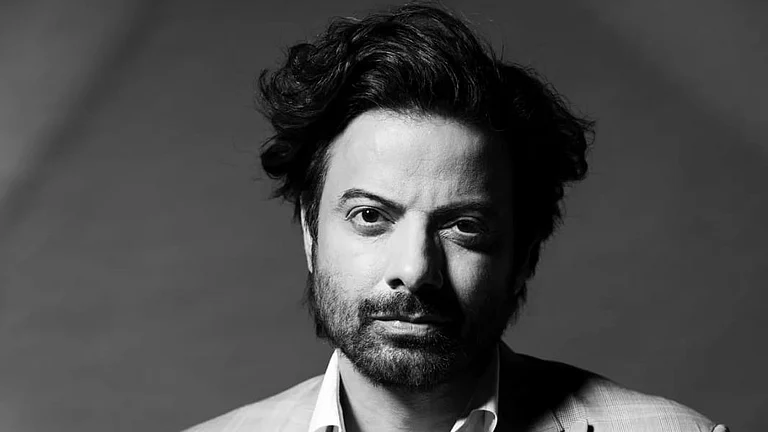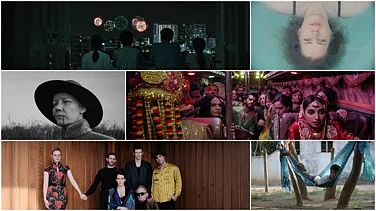FOR those who remember when rock was young, those still wearing Woodstock bifocals and mourning the demise of the good old days, rock in India looks dead. The good news, however, is that 'underground' rock is now rearing its head. A compilation of 14 original tracks from lesser known bands from across the country—billed as Rock from the Underground—is ready for release. The songs are not the kind to inspire the A&M managers from Tin-Pan Alley to catch the next flight to Bombay, but it certainly questions the notion that popular music begins and ends with Remo Fernandes and Indus Creed.
The impetus to record original material came from the Allahabad-based magazine The Rock Street Journal (RSJ) which in the last two years has highlighted the efforts of local musicians with a creative bent. The 'underground' album is the result of a talent search held earlier this year by RSJ. More than 150 demo tapes came from across the country and the songs on The Great Indian Rock-14 underground tracks are the selected best of the entries. According to Amit Saigal, editor of RSJ, a major recording company has agreed to release the album and a second compilation is on the way.
Saigal, who comes from a family entrenched for three generations in the printing business, has been able to pursue his interest in rock from the outback of Allahabad which has never been on the pop map of India. When it started out in October 1992 no one gave RSJ an outside chance. But the magazine now sells about 32,000 copies and is being noticed by record companies in Bombay. Recalls Saigal: "It is because we were working out of Allahabad that we survived. We had the infrastructure and our overheads have been low. But we are now doing fairly well."
The basic concept behind RSJ's talent search was to provide a forum for bands which do not wish to slot themselves in the Hindi-English-rap-bhangra groove that record companies believe is the formula for commercial success. Saigal admits the first compilation has some very rough edges and that many of the bands were recording in a studio for the first time. He is confident that future compilations of 'underground' rock would improve and some of the bands showcased will be signed on to cut their own albums. Says Saigal, who plays the guitar and was part of a local rock band before he turned editor: "Through our compilation we hope to give musicians a chance to prove their worth. It also gives bands the inspiration to do their own music."
But how genuine is the Indian 'underground'? Other than being obscure, the bands featured do not quite fit the bill as underground musicians. In the West the underground is identified as part of a movement of counter-culture. But the Indian bands identified by RSJ do not seem to subscribe to any ideology. The lyrics are largely disjointed and at times annoyingly banal:
"Don't fan the flames of passion, I got fire in my pants/I got this problem and I just can't seem to solve it with my hands."
By any yardstick this is not under-ground verse. Neither is "You're as ugly as a toadstool/And you smell like one too" an angry sociological statement that Lou Reed would have been proud of.
Lyrical depth is clearly not what one should expect of the Indian underground. However, there is raw energy in good measure, which is what is promising. The instrumentation at times has a cutting edge and although the influence of Pearl Jam, Metallica or Van Halen is very perceptible, there is a sincerity of purpose. True, the recordings lack the benefit of a big budget, but then this is the first time that lesser known bands have been given a platform to reach wider audiences. Words and melody structures seem to be the stumbling block.
The better tracks are the instrumentals. Blue Turtle Dance, a solo guitar and synthesiser effort by Edwin Fernandes, has drive and feel. Juice of Chrysanthemum by the Bombay-based Chakra-View is a lively piece of jazz fusion. But the best track on the album is undoubtedly Borroweevil by Indian Ocean. The live recording of the four-man Delhi-based band stands out as a fairly sound example of Indo-jazz-rock fusion. (Indian Ocean, however, prefer to call their brand of music 'elemental' rather than fusion, saying that the latter term denotes a conscious blend of eastern and western musical elements.)
But where RSJ has scored is in inspiring groups playing the college circuit to go to the studio. There is, however, a great deal of difference between playing cover versions and original material. The Delhi-based Parikrama with its '60s influence may have a fan following at concerts, but their own composition, Till I'm One Again, falls flat. The Bombay band Witch Hammer describes its music as power rap, but does not do musical or lyrical justice to Riots in Tihar. Viju George from Kochi has a voice which has impressed, among others, Peter Jenner, manager of Pink Floyd. However, In Your Arms, dedicated to the Queen of the Arabian Sea, is not likely to set the cash registers in music stores ringing.
For most Indian groups, it is a long way to the top. Most of the musical experiments in the '60s and '70s were abandoned for lack of support from record companies. Many of the musicians—like Saibal Basu of Orange Street—drifted into the more lucrative exercise of playing in film studios. Edwin Fernandes is typical of the behind-the-scenes musician who got stuck in the studio rut—a vicious circle where he took home a comfortable package of about Rs 20,000 a month but never got anywhere in terms of exposure. At the other end, college bands grow old playing at raucous university festivals around the country. More often than not, if they insist on making their money in music, they graduate slowly to the hotel circuit—playing at five-star New Year's Eve parties and uptown neighbourhood bashes, with the odd television jingle thrown in. But in the '90s there is optimism that rock bands can survive and do more than play Van Halen or Nirvana at university festivals. Saigal feels his talent search will provide a platform for bands to come into their own.
The 'underground' album is at the moment being distributed free along with RSJ, but a nationwide release is expected in January '96. The immediate fallout has been that DJs from FM stations in Delhi, Bombay, Goa, Calcutta and Bangalore have been playing the songs. Record companies have been sounding out some of the bands. But what's even more encouraging than this is that record companies have shown interest in the future projects of Saigal and RSJ.
As a concept RSJ and Saigal have hit upon what he describes as the "beginnings of a revolution". At a time when hype and financial inputs are seen as essential for a rock/pop act to take off, RSJ's efforts are commendable. The last time when lesser known musicians were given a chance to record was in the early '70s after the Simla Beat Contest. Those who have heard that album will vouch for the fact that Indian rock has moved on from those early years. Long live Rock!






















